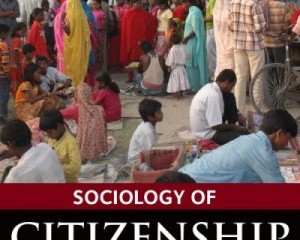
Between Nation-State and Ummah’s Appeal: The contradictions of Islamism in contemporary India and Bangladesh
Generally, Islamists believe in the Universalist concept of Ummah (Islamic community of believers), a supranational or transnational union. The Islamists’ call for unity of the Ummah is based on the belief that Muslims throughout the world should have a sense of solidarity among them cutting across the borders of the nation-state. In this respect, Islamism has justifications to oppose the concept of the nation-state. The Islamist ideologue Maududi (1993) was opposed to the idea of the nation-state, and citizenship based on nationality, considering nationalism to be divisive and as such incompatible with Islam (Maududi 1992).
Conceptually, ‘Ummah’ incorporates the Muslim community in the world as a whole. Therefore, Islamism always tries to claim itself as a ‘mass ideology’ instead of a ‘class one’. For a mass ideology, it asserts the unity of ‘Ummah’ where persons across class, national, linguistic and gender divides can become a part. As an effective tool of political mobilization, the universal concept of Ummah is absolutely crucial in Islamist political ideology. In Laclau’s (1996) terms, one can argue that in Islamist politics, Ummah acts as an ‘empty signifier’ around which different particularities are organized to claim a common universal identity. The idea of Ummah provides the ground for Islamists to take the challenge of rallying the entire Muslim community under a single political project, a project I call Islamist populism.

Against Ad Hocery: UK devolution and the need for consultation, consensus and consideration
Last month the Political and Constitutional Reforms Committee published a report on the future of devolution, in the wake of the Scottish Referendum. Here Dave Richards and Martin Smith pick the report apart and look at the implications for devolution in the UK. The newly published report on the Future of Devolution after the Scottish Referendum is a worthy attempt to bring some order to an often confusing and conflicting debate concerning where devolution goes after the election. Strikingly, the Committee notes that since the September 2014 Scottish Independence Referendum, rapid developments have been made in bilateral ways which pay little attention to the overall nature of the Union. What the Committee has identified is the extent to which devolution is happening in …

Forecasting the 2015 British general election: three weeks out
Forecasters, academic experts, journalists, pollsters and the betting markets have long been forecasting a seriously hung parliament with both major parties not only short of the 326 seats required for an overall majority but even forecast to get less than 300 seats. Meanwhile, an SNP landslide is expected in Scotland which would be hugely damaging for Labour and have major implications for the government formation process. If the forecasters and betting markets are right in their central forecasts then Con+LD+DUP combined will be short of a majority and so a Labour led government should form if they can secure the support of the SNP and probably others, including the Liberal Democrats, will be needed too: a potentially messy and unstable situation but also one where there is sufficient similarity in ideological perspective for policy agreement on plenty of issues.
But there is uncertainty associated with all the forecasts and some forecasters are trying to estimate the extent of that uncertainty, which in turn can be used to calculate probabilities of particular events (hung parliament, largest party, etc.)

‘Devo Manc’: ‘Northern Powerhouse’ or ‘Northern Poorhouse’?
Centralisation has certainly failed, but the promise of devolution to Greater Manchester is being massively hyped. Manchester is a great world city which has long divided observers. In the mid-nineteenth century, what was for de Tocqueville a ‘foul drain’ and for Taine ‘Babel built of brick’ was for the Edinburgh Review, by contrast, ‘foremost in the march of improvement, a great incarnation of progress’. Most recently, with ‘devo Manc’, the city of 1980s de-industrialisation and indie music has been transmuted into a symbol of post-industrial regeneration and devolved government. All this is being talked up as a matter of electioneering by the Treasury and Westminster politicians. After all, the coalition government must be seen to have a policy on ‘rebalancing …

Decision 2015
The United Kingdom general election is less than a month away, and it is proving to be on a knife’s edge. Only a few percentage points separate the Labour Party and the Conservative Party, and for now no party seems to have a decisive advantage in the polls. Meanwhile, smaller parties such as the Greens, the Liberal Democrats, the UK Independence Party (UKIP) and the Scottish National Party (SNP) could hold the balance of power in a hung parliament after May 2015. What are the predicted outcomes of the upcoming election, and how can we accurately forecast the vote? What would a coalition government look like? How will Britain’s relationship with the European Union develop after May 2015? What is …

Afropolitanism: Global citizenship with African routes
Diasporas and other transnational communities have become particularly useful case studies for scholars interested in stretching and challenging mainstream conceptions of citizenship. It is now widely accepted that for many people around the world, physical location and formal legal citizenship may not be the most salient forms of social, political or economic affiliation. As the process of globalization continues to expand, more and more people find themselves in one place, while their lives are structured and oriented by connections to one or several other places. Some of these ‘places’ are other nation states, such as an ancestral country of origin. However, many such ‘places’ exist extraterritorially as abstract yet powerful expressions of identity, community, and belonging.
Enter Afropolitanism.
In 2005, Taiye Selasi authored a short piece for The Lip Magazine titled ‘Bye-Bye Babar (or: What is an Afropolitan?)’. In it, the British-born, American-raised, writer of Nigerian and Ghanaian origin, formulated a definition and vivid depiction of an ‘Afropolitan’, one that has become the reference point for many enthusiasts and critics alike.

The Cambridge Election Podcast
From the University of Cambridge comes ELECTION, a weekly politics podcast; asking the questions that no one else is in the run-up to the British General Election with the most interesting people inside and outside the political arena. Here below are the sixth and the seventh podcasts.
#6 – Rae Langton on Charlie Hebdo, hate vs free speech & blasphemy
What constitutes hate speech? Does the Press do more harm than good in our democracy? When should words become the government’s business? We put these questions to Professor Rae Langton – award-winning philosopher and the world’s ‘fourth most influential woman thinker’ – and discuss whether free speech can ever be reconciled with a need to suppress hateful voices. The team then discuss the fallout of Ed Miliband’s ‘second kitchen’, whether politicians can – or should – keep their families out of the media spotlight, and the lessons from the Israeli election result.

The Great Charter of Liberties
Looking at the distance between the Westminster parliamentary system and those to whom elected representatives are ultimately accountable, the Chartists had a point – in fact, at least six points. Magna Carta: Law, Liberty, Legacy. The coincidence of the British Library’smagnificent exhibition with a general election campaign is bound to tempt political parties to claim a particular affinity with Magna Carta, or more precisely with what they believe it embodies. As David Carpenter’s new Penguin Classics edition demonstrates (together with the review of it that Peter Linebaugh contributed to this series) – this is a subject still wide-open to contest. Yet this in no way diminishes the significance of previous interpretations, especially those that helped shape past political movements. That great popular movement of the …









